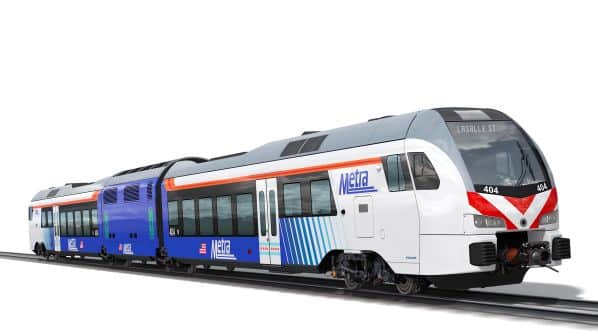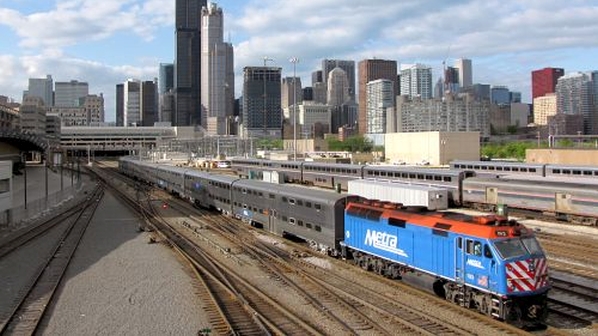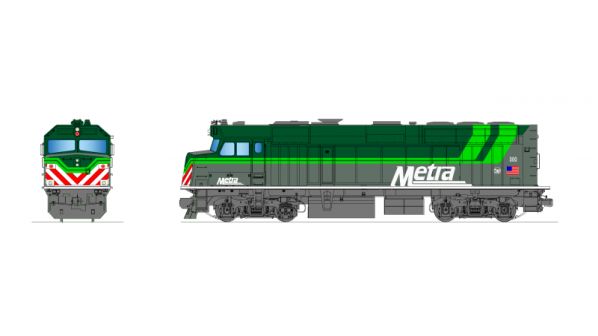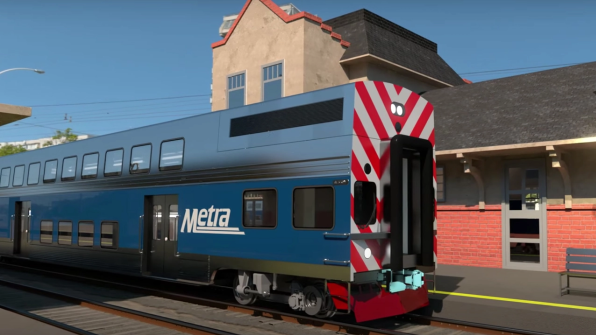CHICAGO commuter operator Metra has signed a contract with Stadler for the supply of up to 16 battery trains, placing an initial order for eight battery-electric multiple-units (BEMUs).
The contract includes a $US 154m base order for eight two-car BEMUs, including training and spare parts. There are options costing up to an additional $US 181.4m for eight more trains and up to 32 trailer cars, which could be added to the two-car trains in order to extend them to three or four cars in length.
Stadler says that it has been selected as preferred bidder in the first competitive tender for the supply of battery-powered trains in the United States, where the other bidder was Siemens. The new trains will also be Metra’s first zero-emissions rolling stock.
The two-car trains will be introduced on the 26.2km Beverly Branch of Metra’s Rock Island Line, running between La Salle Street station in central Chicago and Blue Island. This would enable Metra to retire some of its oldest and most polluting diesel locomotives, which it says are now well beyond their useful life, and withdraw some of its oldest coaches.
As well as reducing carbon emissions and delivering a direct improvement in local air quality, the new battery fleet could also provide a more economical way of maintaining or increasing the current service frequency, particularly off-peak, and play a significant role in helping Metra to achieve its goal of providing a more frequent all-day commuter service.
A fully-charged train is expected to have a range of between 72km and 104km. Charging time will vary, but going from a 20% charge to 80%, sufficient for the train to operate, is expected to take around 20-30 minutes. Metra says that the exact charging infrastructure and its cost have yet to be determined.
As well as meeting Federal Railroad Administration (FRA) standards, the new trains will be compliant with the Americans with Disabilities Act (ADA), equipped with low-level boarding and wheelchair lifts.
Each two-car train will have 112 seats, with each additional trailer car having 46 seats. The new BEMUs will feature inter-car gangways, passenger information displays, bike racks and USB ports. Metra says that, if ordered, 50% of the trailer cars would have ADA-compliant accessible toilets.
Stadler says the new trains will also be specially adapted to cope with the severe winter conditions in Chicago, featuring efficient air-conditioning technology and underfloor heating in the boarding areas. They will also be fitted with special insulation and sealed equipment compartments to protect traction equipment.
The new Metra fleet will be built in the United States, in order to comply with the requirements of the Buy America Act that applies to all new rolling stock funded by the federal government. Metra has secured a $US 169.3m federal Congestion Mitigation and Air Quality Improvement (CMAQ) grant toward the cost of the new BEMUs.
Metra expects that the first trains will be delivered in 2027-28.
“We think these trains will be an essential addition to our fleet,” says Metra CEO and executive director, Mr Jim Derwinski.
“Beyond the environmental and noise reduction benefits, they could also play a significant role in our vision to provide more frequent all-day service.”
“Our BEMU technology helps support transit agencies like Metra in their mission to bring state-of-the art green public transit to the US,” says Stadler US CEO, Mr Martin Ritter.
For detailed data on fleet orders from around the world, subscribe to IRJ Pro.




